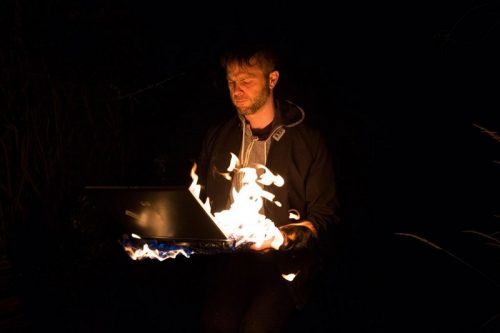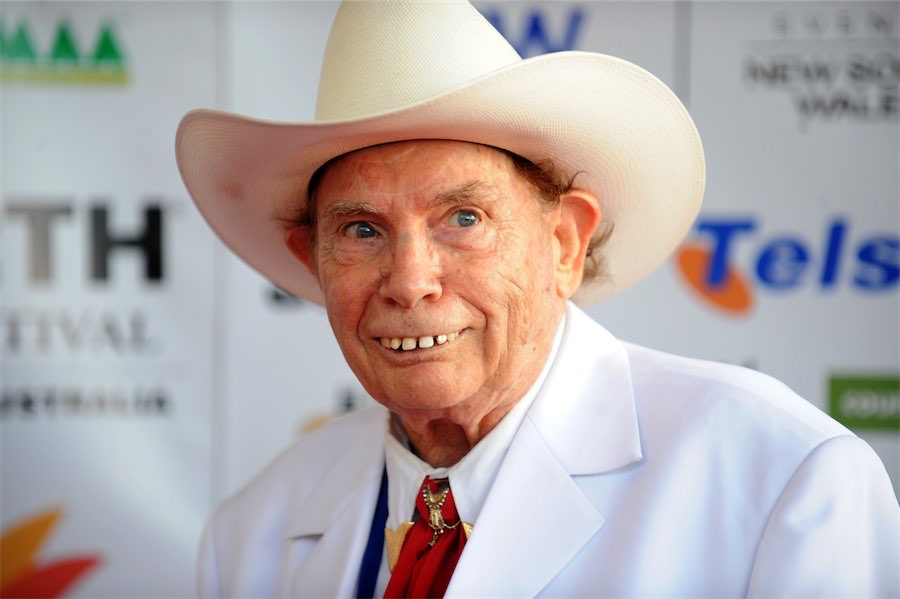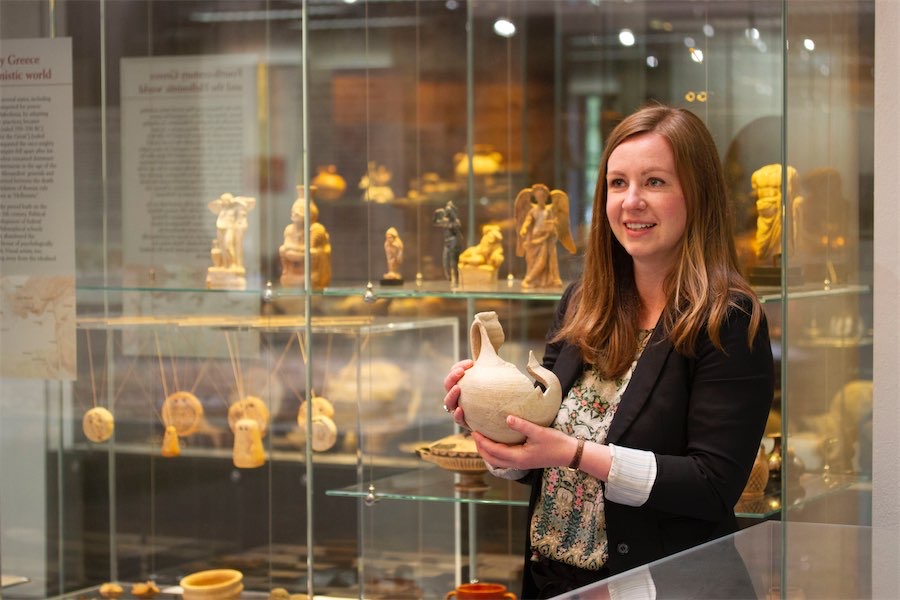
Theatre / “You’re safe til 2024: Deep History”, David Finnigan and Reuben Ingall, Courtyard Studio Canberra Theatre, until April 10. Reviewed by SAMARA PURNELL
IMAGINE dropping grains of sand into a pile – over time avalanches occur… and we are poised on the brink of change.
The grains of sand represent the human population and these avalanches in time are the premise of “Deep History”, where a female protagonist, of our imagination, travels through time, beginning 75,000 years ago with the volcanic eruption of Mount Toba, Indonesia.
The ashy fallout, which may have caused a volcanic winter and a bottleneck in population, is the first critical event described, where six, key survival “take-aways”, scribbled on butcher’s paper are promised. This first one states the population is around 15,000 and the lesson is “Survival is possible”.
David Finnigan wrote the script for “Deep History” over a 75-hour period during the end of December, 2019. As Australia was being incinerated by bushfires, he wrote from where he was temporarily stationed in London, receiving harrowing texts from his friends, caught in the midst of the fires back home.
Finnigan’s passion for climate change action appears to be largely influenced by his thrill-seeking-cum-scientist father, who survived a terrifying rock-climbing accident, described by Finnigan as “when climate change fired an early warning shot” at his dad. He described modern-day humans as “a teenaged species” who, Finnigan said: “Didn’t come this far only to come this far”.
“You’re safe til 2024: Deep History” was presented without any change or updates to the script, despite being presented behind schedule due to covid. It is part two in a six-year project that Finnigan and Reuben Ingall have committed to creating. One work each year.
This instalment was delivered in a casual manner, primarily as a monologue by Finnigan, for just over an hour. It is full of details, facts and figures (presumed accurate and researched). It was noticeable that Finnigan relied, albeit sporadically, on his notes, so the phone was almost constantly in-hand.
Ingall, armed with a pink electric guitar, created a soundscape composed of a thematic pop-song and brooding music, at times ominous, becoming funereal. He was onstage throughout the performance, creating and mixing the sound in real-time.
Accompanying images and footage projected throughout the performance ranged from corny, to humorous, to confronting depictions of the bushfires.
As Finnigan’s journey travelled through the extinction of the megafauna, the end of Neanderthals and reached 500 years ago, population 500 million, where slavery and disease were spreading evermore rapidly, the “lessons” he has extracted from history become more selfish and disturbing. The scoops of sand being funnelled onto a table onstage is piling up.
The lights dim again as Finnigan described the 1945 atomic bomb (population 2.5 billion), before delivering a crescendo of worrying information about extinction and our bodies being full of chemicals and plastic. The music builds in intensity and urgency.
On a roll about the 2019/20 bushfires, reading the relay of messages between his friends – one in Braidwood and one – the “snap-decision maker”, Jack, in Moruya, Finnigan became increasingly worried and agitated. While building speed and intensity, a couple of times he suddenly broke the momentum to ask Ingall, who also has a personal connection to the south-coast fires, about his experience.
To hear this summation and to relive the bushfires after being in the middle of it, the epic scale and intensity of it is still tough to watch and hear about and elicited audible responses from the audience.
By this stage Finnigan is just throwing a nauseating amount of sand in the general direction of the funnel and berating climate-change deniers.
Stopping just short of being overly descriptive of the creative process, Finnigan and Ingall have created an engaging, interesting and hectic snapshot of how “wherever humans went we changed things”. They have presented personal, true stories overlaid on the backdrop of a species crashing forward at terrifying speed, where the primary take-away appears to be the need to halt population growth.
With the “advantage” of a year of hindsight, “Deep History” begs the uncomfortable question – where to from here and what will be the next tipping point? With the onset of the COVID-19 pandemic hitting only weeks after this script was written, it seems like the next instalment has already written itself.
Are we poised on the brink of the next avalanche? The sand continues to trickle through the funnel.
Who can be trusted?
In a world of spin and confusion, there’s never been a more important time to support independent journalism in Canberra.
If you trust our work online and want to enforce the power of independent voices, I invite you to make a small contribution.
Every dollar of support is invested back into our journalism to help keep citynews.com.au strong and free.
Thank you,
Ian Meikle, editor




Leave a Reply